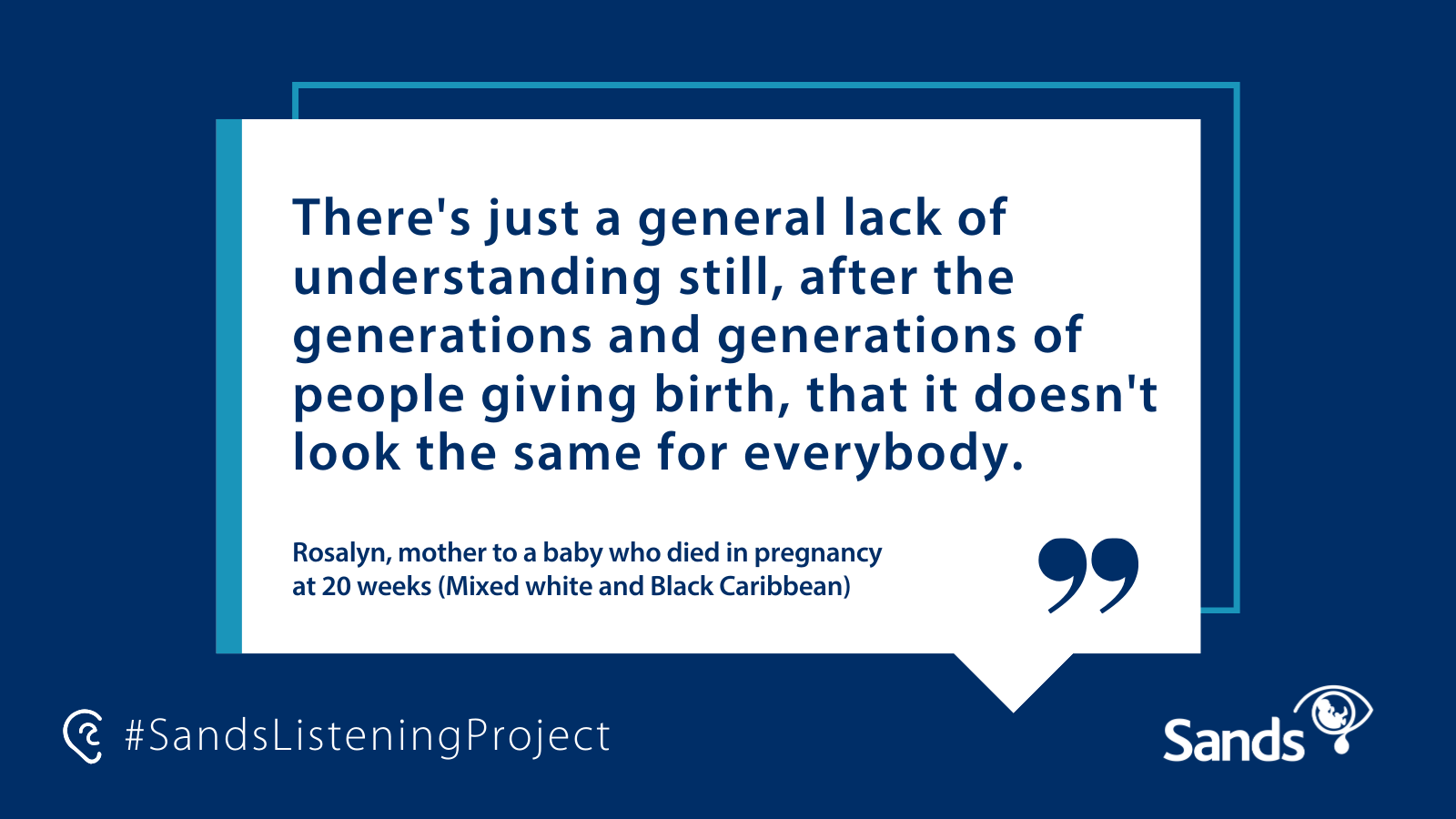Black and Asian bereaved parents whose baby died during pregnancy or shortly after birth have shared their experiences as part of the Sands Listening Project.
The 56 parents who took part shone a light on care that works well, while also highlighting barriers, biases, and poor care.
Some families told us not being listened to or having their concerns taken seriously led to important warning signs going unnoticed, investigations not being carried out and opportunities to save babies’ lives being missed.
Read Sands Listening Project report.

In the report you can find out more about pregnancy loss and baby deaths among Black and Asian babies in the UK, our findings, real-life experiences and case studies, plus what needs to change.
These findings have been shared alongside a national enquiry to provide powerful evidence for improvement.
Some parents who took part in the Listening Project have chosen to share their stories to help Sands promote the findings of the report. Read more about Vaishali, Amber, Daniel and two others who chose to remain anonymous; a mother of mixed Black and white British ethnicity and a mother of Asian/Indian ethnicity.

What did we find?
Half of the parents who took part believed that they had received worse care or been treated differently by healthcare staff because of their ethnicity. Parents described a range of safety issues that fell within four key areas of care:
- Being listened to and heard
- Personalised, joined-up care
- Communication about safety and risk
- Safety and learning
This project helps us understand how systemic issues, along with poor practice and discrimination from some healthcare professionals, may lead to less safe care, with devastating consequences for some Black and Asian families.
Why is this needed?
Evidence tells us that Black and Asian babies are more likely to be stillborn or die as newborns compared with white babies.
An MBRRACE-UK confidential enquiry was published on 14 December 2023. This enquiry looked at the clinical care of mothers and babies from Black and Asian backgrounds to learn lessons to improve care.
Sands’ report from this Listening Project was published at the same time to ensure that the voices of bereaved parents are heard alongside learning from clinical care.
Combined, the two reports provide powerful evidence of where improvements are needed.
How will this work help make positive change?
The findings from the Listening Project have been shared with a wide audience, including policy makers, researchers and health professionals. We will also take what we have learnt and feed it into Sands’ training and campaigning work, and resources for parents.
Some of the parents who took part are now helping Sands campaign for change, and shaping our future research, education and policy work.
You can help us to #EndInequalityInBabyLoss by signing our open letter, asking the next government to take urgent action.
